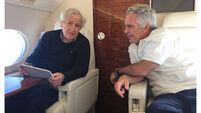Food for thought in one volume
Every community, ancient and modern, lights fires and cooking is common to all cultures. But was the roasting of food in campfires long ago any more significant than the drying of fish or the pounding of meat? Could it have had more profound implications? Harvard zoologist Richard Wrangham thinks so. In Catching Fire, How Cooking Made Us Human, he argues that the invention of cooking led to changes in our ancestors’ bodies that made us a unique species. Even social and family structures, he thinks, owe their origins to it.
Despite what ideological vegetarians claim, a person can’t survive indefinitely on a diet of raw food, or so Wrangham claims. Eating and digesting require more energy when the food is raw than when it is cooked. Apes and monkeys spend much of the day chewing. A snake’s digestive system uses 43% of the creature’s resources. Modern humans are much more efficient; only 5% to 10% of the energy from our food goes to eating and digesting it. Cooking softens and breaks up fibres, rendering digestion and absorption easier. Humans need to keep food in the stomach for only two hours before sending it on to the small intestine. Dogs and cats, whose diets in many ways resemble ours, retain food for twice as long and plant-eating creatures take longer still.














